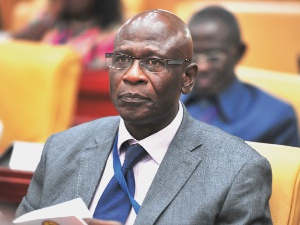The Ministry of Local Government and Rural Development (MLGRD) with the GIZ is rolling out a number of programmes to assist district assemblies to maximise the mobilisation of their Internally Generated Funds (IGF).
A Deputy Minister of Local Government and Rural Development (MLGRD), Mr Kwasi Boateng Adjei, who announced this, explained that the support, which included the provision of IGF software and the implementation of Street Naming and Property Addressing System, would improve on the collection and management of their revenue.
Mr Boateng Adjei, who is also the New Patriotic Party (NPP) Member of Parliament of New Juabeng North in the Eastern Region, noted that some district assemblies still faced challenges with mobilising their IGF, which was not in their local and national interest.
He was addressing the opening of an Operational Planning Workshop for the Support for Decentralisation Reforms Project (SfDR), which is a bilateral development programme of Ghana and Germany, and jointly implemented by MLGRD and GIZ.
Bringing clarity to tasks
The two-day workshop aims at bringing clarity to the remaining tasks and responsibilities of the assemblies and partners, in line with the objectives of the SfDR Project for 2019.
On the priorities of the ministry for the year, Mr Boateng Adjei said the ministry would have series of engagements towards ensuring that the referendum on the election of Metropolitan, Municipal District Chief Executives (MMDCEs) was held in September this year.
This, he said, would pave the way for all MMDCEs to align their plans with the Rural Development Policy for its successful implementation.
The ministry, he said, would also focus on the finalisation of the establishment of District Centres for Agriculture Commerce and Technology (DCACT) in all ministries, departments and agencies as an institutional mechanism to harmonise and coordinate all commercial, entrepreneurial and agricultural initiatives.
Achieving a sustainable economy
This would facilitate the achievement of a viable and sustainable economy and as well create jobs at the local level.
“We critically need to develop innovative solutions, build on synergies to maximise trade-offs and forge strong partnerships to achieve the task ahead,” he emphasised.
The deputy minister lauded the productive partnerships forged among Ghana, Germany, the United States and Canada for aiding Ghana’s decentralisation and local governance process.
Development partners, non-governmental organisations, representatives of district assemblies and local government institutions are attending the event, which ends on Thursday.
General News of Saturday, 19 January 2019
Source: ghananewsagency.org
District assemblies receive support to maximise revenue mobilisation
Entertainment












